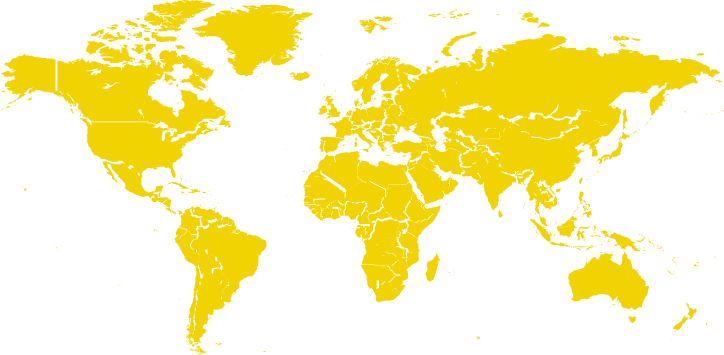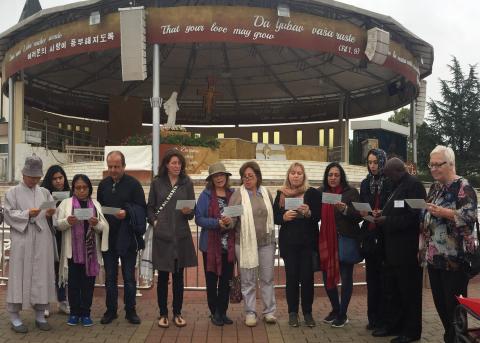To:
President Barack Obama
Prime Minister David Cameron
President Hu Jintao
President Dmitry Medvedev
Chancellor Angela Merkel
President Nicolas Sarkozy
Ayatollah Seyed Ali Hosseini Khamenei
Re: A Peace and Security Appeal regarding Iran
We are the founding members of Voices for a World Free of Nuclear Weapons, which is a Cooperation Circle of the United Religions Initiative (URI). URI is an international bridge building organization dedicated to promoting "cultures of peace, justice and healing for the Earth and all living beings." We advocate peaceful resolution of differences between nations and peoples.
In that regard, we wish to bring to your attention our statement, “A Peace and Security Appeal,” which is attached hereto. It is our hope that these suggestions will be of value in your deliberations.
Very truly yours,
Dr. Sidney Drell, Professor of Theoretical Physics (Emeritus) at SLAC National Accelerator Laboratory; Senior Fellow at Stanford’s Hoover Institution
Roger Eaton, Technology and Communications Coordinator for URI-North America
Ambassador James E. Goodby, former Ambassador to Finland; served as Vice Chairman of the U.S. Delegation to the Strategic Nuclear Arms Negotiations with the U.S.S.R. Bipartisan Security Group Expert
Jonathan Granoff, President, Global Security Institute
Professor David T. Ives, International Steering Committee member, Middle Powers Initiative; Executive Director of the Albert Schweitzer Institute, Quinnipiac University, Connecticut
Dr. Abraham Karickam (India), URI South Zone Coordinator for India; former Director of Comparative Literature at the Mar Thoma College in Kerala, India
The Honorable Secretary George P. Shultz, former Secretary of State and Chairman of the President’s Economic Policy Advisory Board under President Ronald Reagan
Rev. Tyler Wigg Stevenson, Board of Directors, Global Security Institute; Founder and Director, Two Futures Projects
The Rt. Rev. William E. Swing, President and Founder, United Religions Initiative; Retired Episcopal Bishop of California
Monica Willard, URI NGO Representative at the United Nations
Sam Ruben, Executive Assistant, URI Global
A Peace and Security Appeal
1. Iran’s leaders state that nuclear weapons are not consistent with the tenets of Islam and that Iran is entitled under the terms of the Nonproliferation Treaty to build the necessary infrastructure for a civil nuclear power program.
2. Iran’s nuclear program contains elements that leave open the question whether Iran is presently building or might in the future build nuclear weapons.
3. Iran had a surreptitious nuclear program hidden from international inspections for over 17 years, although there is scant evidence that this program was for weapons purposes. Nevertheless it has created a gap of trust.
4. Iran’s statements denying any intention to build nuclear weapons have not been sufficient to convince other governments that it has no intention of building nuclear weapons. Combined with provocative statements from Iran’s leaders challenging the right of Israel to peace and security, this uncertainty has escalated tensions to dangerous levels.
5. There is serious discussion regarding the possibility of military attacks against Iran’s nuclear facilities, and these have engendered serious threats from Iran regarding the closing of the Strait of Hormuz.
6. All of these circumstances are taking the nations involved very close to the brink of war.
7. The Islamic Republic of Iran could easily defuse this hazardous situation by taking all necessary steps to clarify any actions it is taking that appear to be preparations for building a nuclear bomb. Moreover, it could do so in a manner which enhances the norm of global inspections and monitoring of nuclear activities.
8. We call on all governments concerned, and especially the governments of Britain, China, France, Germany, Russia and the United States of America, to join with Iran in a negotiation that will remove the threat to world peace that the present situation represents.
9. We believe that in such a negotiation, Iran’s right to a civil nuclear power program should be recognized by its negotiating partners and that Iran should recognize the interest of the international community in an easing of international tensions and the strengthening of trust between states.
10. We believe that it is necessary to inform Iran that its security will not be threatened if it takes such steps and that Iran must cease all overt and implied threats toward Israel or any other legitimate state.
11. There are many viable approaches to address Iran’s concern of access to peaceful uses of nuclear technology and materials. For example, the creation of an international nuclear fuel service facility could help to assure Iran of the uninterrupted supply of fuel for its civil power program. Another route could be revival of a trade arrangement in which Iran trades un-enriched uranium for enriched uranium for medical isotopes.
12. We support the goals of the Nonproliferation Treaty, one of which is to facilitate the elimination from national arsenals of nuclear weapons and the means of their delivery and, as a step toward that goal, the creation of a weapons of mass destruction free zone in the Middle East. We support both of these aspirations. We understand that Israel will not join in advancing this zone while its security needs are not recognized by its neighbors and we urge all nations, especially those in the Middle East, to explicitly state their support for the security needs of all Member States of the United Nations.
13. We urge all nations to take immediate and tangible steps toward these goals, believing that Iran’s contribution to these efforts will be especially important to world peace and would be a catalyst that would encourage sustained progress toward the goal of a world without nuclear weapons.

